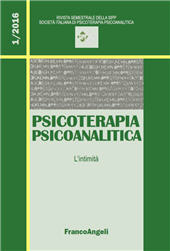Avidità e capitalismo : storia di un problema
113-130 p.
Dinnanzi allo spettacolo di diffusi comportamenti, improntati all'avidità, l'autore si chiede quale ruolo essa abbia avuto nella genesi e nello sviluppo delle società capitalistica. Questo tema era già presente nei teorici dell'Illuminismo, convinti che avidità ed egoismo ("passioni anti-sociali") potessero essere frenati da considerazioni "razionali" o "etiche", che affondavano le radici nella "natura umana", esaltando la funzione della società anche nella ricerca della "felicità privata". Il problema sarà ripreso nei secoli successivi da vari teorici (Carl Marx, Max Weber, Werner Sombart, Émile Durkheim e altri ancora), con la consapevolezza che il capitalismo abbia profondamente trasformato la natura umana, enfatizzando il ruolo dell'avidità nel comportamento individuale e collettivo
Ora, considerati gli attuali squilibri sociali e ambientali, determinati dal comportamento rapace di individui e gruppi, l'autore si chiede se un riorientamento del comportamento umano possa promuovere un cambiamento sociale. [Testo dell'editore]
Faced with the spectacle of widespread behavior, marked by greed, the author wonders what role it has played in the genesis and development of capitalist societies. This theme was already present in the theorists of the Enlightenment, who were convinced that greed and selfishness ("antisocial passions") could be curbed by "rational" or "ethical" considerations, which had their roots in "human nature", exalting the function of society also in the pursuit of "private happiness". The problem would later be taken up by various theorists, in the following centuries (Carl Marx, Max Weber, Werner Sombart, Émile Durkheim and many others), with the awareness that capitalism had profoundly transformed human nature, emphasizing the role of greed in individual and collective behavior. Now, given the current social and environmental imbalances, brought about by the rapacious behavior of individuals and groups, the author wonders whether a reorientation of human behavior can promote social changes. [Publisher's text]
Is part of
Psicoterapia psicoanalitica : 2, 2024-
Articles from the same issue (available individually)
-
Information
ISSN: 2531-6753
KEYWORDS
- avidità, individualismo, spirito faustiano, mutamento sociale
- greed, individualism, faustian spirit, social change


